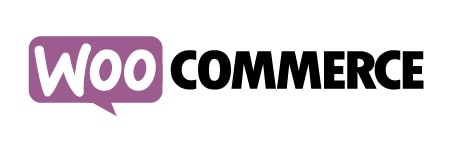10 Best eCommerce Platforms in 2024
Looking for the best eCommerce platforms? It’s quite a challenging task as your business entirely depends on the CMS platform you opt for.
Selecting the best eCommerce CMS is considered to be the business foundation and a daunting task too!
Setting up an eCommerce store is not a difficult task, but choosing the right platform is very necessary otherwise it will ruin the business.
Consumers expect your stores beyond that—they want to shop through multiple touchpoints, from shoppable kiosks to smartwatch apps. The solution to this is using the best headless Ecommerce platforms for 2023.
Ecommerce platforms should be selected keeping in mind the long-term growth.
So, need not worry. We’re going to help you in selecting the best online store builder. Let’s have a look at what needs to be considered while selecting the best eCommerce platform. Also, take a glance at the top eCommerce platforms list and its details.
Table of Contents
- What is an eCommerce Platform?
- Best eCommerce Platforms [2023]
- Bonus Ecommerce Platform
- Things to Consider While Selecting Best CMS for eCommerce
- Conclusion
What is an eCommerce Platform?
An eCommerce platform is a software using which businesses can offer their products/services and customers can purchase them over the Internet from the comfort of their home!
The feature-rich best online store platforms offer functionalities that allow businesses to carry out businesses with the best user experience, payment experience, and utmost security.
Modern businesses demand out-of-box features that can be developed by customizing the default CMSs. As per Builtwith data, Shopify is ranked first among E-commerce CMSs owing to its features like marketing tools, pricing, ease of use, design, sales features, and a lot more.
On the other hand, Magento CMS is most adaptable to customization and one can build even complex online stores with smooth performance and best security as well as user experience. Other top CMS platforms like WooCommerce, BigCommerce, Wix, etc. are also suitable for online stores depending on the niche and type of business.
Best eCommerce Platforms [2023]
1. Shopify
 Shopify is a Canadian multinational eCommerce company and was founded in 2006. Shopify offers many services to online retailers such as marketing, shipping, payments and much more.
Shopify is a Canadian multinational eCommerce company and was founded in 2006. Shopify offers many services to online retailers such as marketing, shipping, payments and much more.
As per Wikipedia, it was noted that by May 2021, it had more than 1,700,000 businesses in approximately 175 countries using ecommerce CMS.
Shopify, the best website builder for online store in the market, is used by small to medium-size businesses. Many top companies such as Raymond, Nush, Kylie, mcaffeine etc. use Shopify to carry out their business.
Setting up an online store is very easy with Shopify’s drag and drop interface, and available templates. You can customize those templates as per the needs and requirements.
This best platform for eCommerce website provides a wide range of credit cards for making the payment process much easier. As Shopify is PCI compliant, the data stored is safe and secure.
This eCommerce platform is responsive and can easily track, manage and modify the store. Thus, this is why Shopify is the best online ecommerce platform for selling.
Features:
- The best ecommerce platform, Shopify provides an opportunity to sell on multiple channels
- Amazing site performance
- It is possible to sell the products both physically and online
Pros:
- Can customize themes
- User-friendly interface
- Easy set-up
Cons:
- Shopify apps are costly
- Checkout cannot be customized
Pricing:
Send your queries here.
Contact:
Send your queries here.
Facebook | Twitter | Youtube | Pinterest | Instagram | LinkedIn
2. Magento
 Magento is an open-source eCommerce platform written in PHP. Magento was started in 2007 and was acquired by Adobe in May 2018. Magento is one of the most popular eCommerce platforms in the world.
Magento is an open-source eCommerce platform written in PHP. Magento was started in 2007 and was acquired by Adobe in May 2018. Magento is one of the most popular eCommerce platforms in the world.
Magento basically provides two versions: Magento Open Source and Magento Commerce. Using Magento Open Source, the store owners can build online stores and leverage the features for free. For using advanced features such as PageBuilder, the store owners can opt for the Magento Commerce version.
Unlike Shopify, Magento doesn’t have built-in POS system, so if you want to sell both on Magento and in brick-and-mortar stores, Magestore POS for Magento is one of the best solutions for your business to seamlessly streamline your omnichannel store operations.
In case of using the Magento open-source version, if you want to extend the features for your modern business requirements, you may hire a certified Magento developer or Magento agency or simply install 3rd party Magento extensions to offer a feature-rich Magento 2 store for your customers.
Magento has a strong community that is responsible for improving the open-source version of this free eCommerce platform. Various events are organized by the Magento community such as Magento Imagine which is the annual Magento eCommerce platform and started in 2011.
The main aim is to share new ideas and providing networking opportunities sessions. Other events such as “Meet Magento” are organized every year. It is open to all who are a part of the Magento Community or wish to be a part of it in the future.
You may even have a look at Meet Magento’s recaps of the years 2021 and 2020.
Magento is used by top companies such as Nike, HP Inc., Jaguar, Canon, Nestle Nespresso, and many more.
Magento Commerce version is expensive though, and the annual licensing fee is in the thousands of dollars. If you are new in the market, then it would be quite challenging and risky to choose Magento as it is complex to understand too.
Also, it is recommended to download and use the latest version of Magento by experts. If you are running on a lower version, your store’s security is at risk. So, you must upgrade to the latest Magento 2 version asap not only for security purposes but also to leverage the latest features like Magento PWA Studio, Magento MSI, performance improvement, and enhancement in customer experience!
So, start diggin’ the best Magento tutorials and devdocs to master one of the biggest eCommerce platforms to build your own online store!
Features:
- Mobile-friendly
- Advanced Search Engine Optimization
- Customization capabilities
- Up to mark inventory management system
Pros:
- Feature-rich and robust
- Wide range of users and community
Cons:
- This Enterprise version of eCommerce CMS is a bit costly
- Requires development skills (Though you can always ask for professional Magento Support Service)
Pricing:
Send your queries here.
Contact:
Send your queries here.
Facebook | Twitter | Instagram | LinkedIn
3. WooCommerce
 WooCommerce is an open-source eCommerce platform built on WordPress. It is a customizable plugin that you can add to any WordPress site. WooCommerce online shop website builder is built with REST API and is scalable which makes it possible to develop a store without any limitations.
WooCommerce is an open-source eCommerce platform built on WordPress. It is a customizable plugin that you can add to any WordPress site. WooCommerce online shop website builder is built with REST API and is scalable which makes it possible to develop a store without any limitations.
Most importantly, WooCommerce supports multiple payment methods which is an essential part of any eCommerce store. This eCommerce website platform facilitates accepting payments via major credit cards, bank transfers, checks, COD, and 140 region-specific payment gateways to enhance the payment experience of your store. Popular payment gateways like Stripe, PayPal, Square, Amazon Pay, Apple Pay, MPGS and Google Pay are also supported.
As per BuiltWith, WooCommerce Checkout accounts for 13.81% of all open source usage distribution on the Internet after WordPress. It includes popular brands using WooCommerce eCommerce website builder such as AeroPress, Weber, All Blacks, and many more.
WooCommerce has a powerful community that can assist you if you are stuck somewhere while building an online store. Moreover, detailed documentation is always there for you to refer to when stuck!
Turn any WordPress website into an eCommerce store for free with WooCommerce, the best eCommerce platform for WordPress site owners!
Features:
- Open-source
- PCI Compliance
- Built-in analytics
- 1,300 WooCommerce themes
Notable WooCommerce Plugins:
- WooCommerce Bookings
- WooCommerce Memberships
- Meetanshi WooCommerce Plugins
Pros:
- Real-time shipping rates
- SEO-friendly
- Mobile-friendly
Cons:
- Recommended only for those who have an existing WordPress site
- Need to install additional plugins for advanced features
Pricing:
Check the pricing details here.
Contact:
Send your queries here.
Access helpdesk.
Facebook | Instagram | Twitter | Youtube | LinkedIn
4. BigCommerce
 BigCommerce was founded in Sydney, Australia in 2009 and is a NASDAQ-listed eCommerce platform that provides various services to retailers.
BigCommerce was founded in Sydney, Australia in 2009 and is a NASDAQ-listed eCommerce platform that provides various services to retailers.
The main aim of BigCommerce is to help merchants to sell their products starting from small startups to large enterprises.
BigCommerce is one of the largest eCommerce platforms that has served more than 60,000 merchants in numerous industries and across 150 countries.
BigCommerce is the best eCommerce platform for startups as they have a lot of features and can easily work on large and complex catalogs.
This eCommerce platform supports both B2B and B2C businesses on a single platform.
The user-friendly interface of BigCommerce allows you to customize your online store easily as per your choice, and can easily sell and market your products.
Additionally, BigCommerce allows you to sell products on multiple channels such as Amazon, Instagram, and best eBay alternatives. And even provides payment solutions such as PayPal, Square, etc. for providing flexibility to your customers.
Features:
- Amazing theme designs
- Good SEO performance
- Supports B2B and B2C businesses on a single platform
Pros:
- Flexible
- Selling on multiple channels
- Flexible payment options
Cons:
- Inconsistent loading space
Pricing:
Send your queries here.
Contact:
Send your queries here.
Facebook | Twitter | Youtube | Pinterest | LinkedIn
5. Wix
 Wix E-commerce platform is one of the top competitors among the eCommerce platforms market and was founded in 2006. As per Statista, Wix accounts for 17% of the market share in the United States in 2021.
Wix E-commerce platform is one of the top competitors among the eCommerce platforms market and was founded in 2006. As per Statista, Wix accounts for 17% of the market share in the United States in 2021.
Wix has gained popularity as an easy-to-use eCommerce CMS platform with the drag and drop site builder. Moreover, with Wix ADI, you can instantly build an amazing website by answering a few questions!
And it includes more than 500 designer templates from which you can select based on the type of your business. By default, Wix is mobile optimized and hence you do not need to worry about responsiveness in your website.
Modern E-commerce sites must have beautiful images and videos that capture the attention of potential customers and prompts them to make a purchase. With Wix, you can leverage media galleries to show videos, images, and text in an attractive gallery layout.
Wix offers Velo, an open development platform to develop advanced web applications with serverless computing. Some of its key features are:
- Intuitive visual builder with 100+ UI elements
- Integrated databases
- IDE and DevOps
- Easy integration of 3rd party APIs
- Integrated marketing tools
- Production-Grade Runtime
Wix allows flaunting a custom domain name, professional mailbox, and SSL-certified websites for your business! Using Wix, have the advantage of free hosting with utmost security, detailed analytics to measure the performance of your website, organized content management, and Wix chat to offer the best live chat support to the users for the best customer experience in your store.
With such impressive features, Wix has managed to be among the best eCommerce platforms and the choice of more than 200 million people globally to create a free website!
Features:
- Multiple payment methods
- Set custom taxes and shipping rules for different locations
- Easy to manage a blog
- Supports more than 90 languages
- Advanced sorting & filtering
- Recurring payments
- Product collections
Pros:
- Free themes
- Easy order management
- Secure checkout
- Coupons & discounts
- More than250 apps for additional features
Cons:
- No upselling feature
- Lacks advanced automation
Pricing:
Check the pricing details here.
Contact:
Send your queries here.
Facebook | Instagram | Twitter | Youtube | LinkedIn | Pinterest
6. Squarespace
 Squarespace was founded by Anthony Casalena in 2003 and now it is a website building and hosting company with 1143 employees and the most popular eCommerce CMS in the United States.
Squarespace was founded by Anthony Casalena in 2003 and now it is a website building and hosting company with 1143 employees and the most popular eCommerce CMS in the United States.
Squarespace has won reputable recognization, such as:
- Top 10 New York-based Employer Brands
- Best Technology Company for Women
- Career launching company
and more.
Moreover, Squarespace has features to offer discounts and coupon codes to boost sales in your eCommerce store. It offers easy inventory management, real-time shopping estimates, quick view capability, abandon cart recovery, and built-in tools for automated tax calculations.
Squarespace offers Squarespace Analytics for insights to study website performance. It shows detailed reports with metrics like page views, conversion, sales, referrers, and bounce rate.
If you choose the Squarespace eCommerce website creator, you can boost sales with the abandoned cart recovery facility, discount codes, and gift cards! Learn some interesting facts and statistics about Squarespace.
One of the easiest eCommerce website builders, Squarespace, allows selling subscriptions, digital content, and even in-person in which you can manage inventory, customer, and sales data synced for easy management! If you are using Squarespace, you may need Squarespace forms for your business.
Features:
- Drag and drop tools
- Rich product listings
- Expert designer templates
Pros:
- Flexible payments
- Efficient logistics management
- Secure checkout
Cons:
- A bit expensive
- No phone support
- Building complex sites can be difficult
Pricing:
Check the pricing details here.
Contact:
Send your queries here.
Facebook | Instagram | Twitter | Youtube | LinkedIn | Pinterest
7. 3DCart
 3DCart is also known as Shift4shop and it develops eCommerce software for business. This eCommerce CMS was founded in 1997 with its headquarters situated in Tamarac, FL.
3DCart is also known as Shift4shop and it develops eCommerce software for business. This eCommerce CMS was founded in 1997 with its headquarters situated in Tamarac, FL.
The main goal was to develop business opportunities for retailers and manufacturers.
3DCart is one of the most popular cms for eCommerce and is trusted by thousands of leading eCommerce businesses such as The UPS Store, CAA, Hickory farms, etc.
The 3DCart has processed over $200 billion annually and has around 200,000 customers across the globe.
3DCart was rebranded as Shift4shop in 2021 and this platform is not used for startups.
Features:
- Supports all required integrations
- Offers user management tools
- It has better features as compared to other platforms
Pros:
- It has many in-built features in the core
- Unlimited storage
- No transaction fees
Cons:
- These cms platform has industrial and outdated templates
- Not recommended for startups
Pricing:
Send your queries here.
Contact:
Send your queries here.
Facebook | Twitter | Youtube | Instagram | LinkedIn
8. Volusion
 Volusion is mainly an eCommerce software provider and also provides marketing and web design services for businesses.
Volusion is mainly an eCommerce software provider and also provides marketing and web design services for businesses.
This eCommerce platform was started in Simi Valley, California in the year 1999. Volusion was the first eCommerce platform offering free trials to customers.
Volusion has all the features required such as responsive themes, rich content editor, product category pages, and advanced search tools that help in the growth of your business.
This CMS platform has remained popular despite other competitors entering the market. It serves almost all the business needs and has almost all the important features included in it.
Volusion is an SEO-friendly online shopping website builder with features to manage metadata and create product and category pages that are SEO-optimized.
It also offers to expand your business on other channels such as Amazon, Facebook, and eBay.
Features:
- Secure payments
- Good SEO performance
- Manages inventory
Pros:
- Can sell on multiple channels
- Does not charge any transaction fees
- Credit card is not required
- Offers free trials to the customers
Cons:
- Many sites look outdated
- No built-in blogging functionality
Pricing:
Send your queries here.
Contact:
Send your queries here.
Facebook | Twitter | Youtube | Instagram | LinkedIn | Pinterest
9. Prestashop
 Prestashop eCommerce CMS is an open-source, Php-based platform with a freemium pricing model. Prestashop is the choice of 300,000 shops in the world in 60 different languages!
Prestashop eCommerce CMS is an open-source, Php-based platform with a freemium pricing model. Prestashop is the choice of 300,000 shops in the world in 60 different languages!
Prestashop was started in 2005 and is one of the best eCommerce platforms for small businesses and startups.
Prestashop comes with around 300 in-built features, enough for any startup!
These features include managing, shipping, product listing, and much more. Prestashop uses a web template system that facilitates users to customize the stores and can add other functionalities using Prestashop add-on.
Prestashop is one of the best open-source eCommerce cms for online store owners. It is simple and easy to use.
Features:
- A freemium, open-source eCommerce platform
- Many apps are available
- SEO is strong enough
- Large community
Pros:
- Flexible to use
- Beneficial for startups as it is free
Cons:
- Not possible to sell on multiple channels
- Developers should be skilled enough
Pricing:
Prestashop is FREE to use
Contact:
Send your queries here.
Facebook | Twitter | Youtube | Instagram | LinkedIn
10. Ecwid
 Ecwid was founded and developed by Russian Internet Entrepreneur Ruslan in the year 2009. Ecwid is the best eCommerce platform that facilitates individuals for creating online stores or can even add to the existing sites.
Ecwid was founded and developed by Russian Internet Entrepreneur Ruslan in the year 2009. Ecwid is the best eCommerce platform that facilitates individuals for creating online stores or can even add to the existing sites.
Ecwid is priced on a freemium model. It is recommended to use Ecwid if you are a WordPress user and effectively using WooCommerce.
This platform offers many benefits and even specializes in sales from multiple channels.
Similar to WooCommerce, Ecwid is compatible with other platforms as well.
Ecwid offers an added benefit of a free forever plan, even though being limited to its ten products.
Features:
- Free forever plan
- Compatible with other platforms
Pros:
- Priced on a freemium model
- Offers to sell on multiple channels
Cons:
- Offers fewer benefits compared to other platforms
Pricing:
Send your queries here.
Contact:
Send your queries here.
Facebook | Twitter | Instagram | LinkedIn
Bonus Ecommerce Platform
Elementor

A powerful website builder, Eelmentor enables users to create stunning WordPress websites without having to write a single line of code.
WordPress is far and away the most heavily-used CMS on the planet.
Delivering websites that are both highly stimulating and technically comprehensive, WordPress is also the weapon of the choice for those looking to create an ecommerce website.
WooCommerce, WordPress’ flagship ecommerce theme is used in 23.5% of all online stores.
But if you can’t code, creating a WooCommerce site can prove extremely challenging.
Well, that is unless you use Elementor.
Elementor’s powerful WooCommerce website builder empowers just about anyone to create the online store they’ve always dreamed of.
Elementor is designed for those unfamiliar with code. As such, its interface is intuitive; users can leverage dozens of features and widgets to create a one-of-a-kind online store. You can leverage 20 unique ecommerce widgets to build the store you’ve always wanted. These include ‘Custom Add To Page’, ‘Product Rating’ ‘Product Breadcrumbs’ and many more.
Perhaps more than any other platform on this list, Elementor offers users the widest variety of 3rd party integrations. A plugin itself, Elementor integrates with numerous other WordPress platforms. You can connect your online store to any number of CRMS (e.g. ActiveCampaign), ensure your store is SEO-optimized by connecting with Yoast and sync with a variety of other platforms via Zapier.
Features:
- Intuitive drag-and-drop editor
- Full Site Kits
- 20+ ecommerce widgets
- Cloud hosting
Pros:
- Huge user community
- Code-free WooCommerce website creation
Cons:
- No free plan for ecommerce websites
Pricing:
Send your queries here.
Things to Consider While Selecting Best CMS for eCommerce:
There are a number of CMS platforms available in the market with unique functionalities. It is sometimes difficult to determine which is the best eCommerce website builder that suits your business type.
Go through the key features that need to be considered while selecting the top eCommerce platforms:
Look Through Customer’s Eyes
A good eCommerce platform delivers consistent experiences and provides excellent customer service. The customer interactions and transactions should be in a single view across every channel.
Order Management
You need to find the most convenient way for the store admin to manage and fulfill orders. Complexity in order management will lead to late deliveries and disturbed inventory management.
Security
You need to choose the best CMS for eCommerce that offers SSL certificates and PCI compliance. It should ensure the utmost security of the store and the data it contains.
Good support
It is crucial that the content management system for eCommerce websites provides help whenever needed. They may even get connected via different mediums such as live chat, emails, or support tickets. You need to select the best appropriate option and can easily connect your provider in case of any queries.
Conclusion
It is quite a challenging and confusing task when it comes to selecting the eCommerce platforms for small businesses or a large enterprise that meets your requirements and is within budget.
This guide is designed to give you an insight into a list of eCommerce platforms available in the market that would help you to select the best and cheapest eCommerce platform available!
Do let me know what best cms platforms you chose in the Comments section below. Also, I have tried to include all the largest eCommerce platforms but if I have missed any best online eCommerce platforms, you are welcome to draw my attention and I will include them in this list of popular cms platforms.
Lastly, do share the post with store owners and developers via social media.
Thank you.
People also Search For:
-
- Best eCommerce Platforms
- Best eCommerce website builder
- Best eCommerce Platform
- Best CMS for eCommerce
- Best eCommerce CMS
- Top eCommerce Platforms
- eCommerce Website Creator
- Best eCommerce Platforms for Small Business
- Best Open Source CMS
- Best eCommerce platforms List
- List of eCommerce Platforms
- Cheapest eCommerce Platform
- Most Popular eCommerce platforms
- Best Platform for eCommerce Website
- Best eCommerce Website Platform
- Top cms platforms
Shivbhadrasinh Gohil
Shivbhadrasinh is the Co-founder & Chief Marketing Officer at Meetanshi. He leads the marketing team and is the person behind the marketing & branding success of the company. Being a seasoned digital marketer, he has been consulting online businesses for growth since 2010 and has helped 100+ clients with digital marketing success.
He loves sharing tips and insights about the latest digital marketing trends aimed at helping online business owners.






2 Comments
Hey, It was amazing to go through your post, that was really so useful and informative!
Thanks for such nice words.